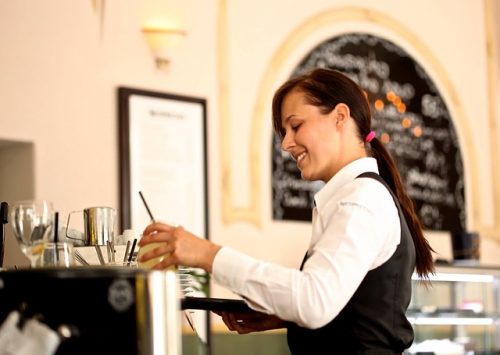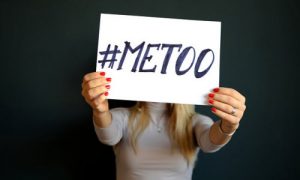The Pew Research Center reports that 59 percent of women and 27 percent of men said that they have experienced sexual harassment of a verbal or physical nature at work. This rate is especially high in male-dominated industries.
The #MeToo movement has drawn awareness to the issue, particularly with the Hollywood and political spheres.
But what about with everyday jobs?
Within the service industry, more than than one-third reported sexual harassment. The Equal Opportunity Employment Commission (EEOC) noted that “food accommodation and food service, retail and and wholesale workers” filed more sexual harassment claims between 1995 and 2016 than any other industry.
However, EEOC’s study also concluded that 87 to 94 percent did not file a formal complaint for fear of retaliation, as what happened to 75 percent of employees who spoke out in 2013. Employees are also in disadvantaged positions — whether by income, race or ethnicity, age, or gender — to challenge or substantive change within their workplaces.
Here are few industries where a high number of workers report instances of sexual assault and harassment.
Hotel Workers
Women in the hospitality industry filed 83 percent of sexual harassment claims, according to the EEOC. Many of them are women, people of color, and immigrants who work alone at night and around alcohol. As they rely on managers and guests for much of their income, unequal power dynamics play a major factor.
Three out of four hospitality workers do not report sexual assault or harassment to upper-level bosses, many choosing to ignore or endure the harasser, according to the Select Task on the Study of Harassment in the Workplace report, conducted by the EEOC.
Wary of retaliation and legal costs, three out of four workers also report that they are unaware of their work’s policies on reporting harassment, according to The Guardian. When it is discussed, the focus is how to avoid legal repercussions for the business, versus preventing sexual harassment; however, bystander training is being implemented.
Housekeepers are especially subject to extensive verbal and physical sexual harassment, along with propositions and public exposure from guests.
To help combat this, the cities of Seattle, Chicago, Las Vegas, and Miami Beach, along with the state of California, equipped housekeepers with panic buttons. These alarm are often worn around housekeepers’ necks and paired with an iPod that will track their location and send the information to their supervisors. Some of the devices will vibrate after the alarm is raised, signaling to the housekeepers that help is arriving. Laws have been passed to require this device into work contracts, including Chicago’s “Hands Off, Pants On” initiative.
Unite Here! is a North American activist group that represents workers in hospitality, as well as in other service industries. They provide statistics on pay and demographics, as well as a boycott list of various hotels for consumers.
Flight Attendants
The FBI reported that in-flight sexual assault cases are increasing, nearly doubling within the three past fiscal years. The Association of Flight Attendants (AFA) said that 68 percent of flight attendants have experienced sexual harassment throughout their careers, often more than once. This included suggestive comments and propositions by by airline passengers.
Pilots and other airline employees also are involved, including groping and physically attacking flight attendants who resist.
Two years ago, Mary Morgan, a flight attendant of SkyWest Airlines, filed a police report against Capt. Robert W. Lowe, whom she alleged raped her during a stopover. The case was later dropped, citing insufficient evidence, according to CNN. However, it is a persistent cultural problem within the industry.
Like hospitality workers, flight attendants typically attempt to ignore or deflect the passenger. Only 7 percent reported incidents to higher-ups, and employee efforts, including anti-harassment and informative training, are scarce, according to 68 percent.
The CEOs of Alaska Airlines, United Airlines, and Spirit Airlines have released public statements in response to the AFA’s report, calling on their airlines to take responsibility and addressing a zero-tolerance sexual harassment policy. Delta has also said their employees are trained to take sexual assault awareness seriously and will investigate claims.
Bipartisan lawmakers released a letter to 30 airlines, calling for action. In May of this year, Democratic Rep. Peter A. DeFazio introduced H.R. 5857, or the Stop Sexual Assault and Harassment in Transportation Act, to enact specific anti-sexual assault and harassment policies and to collect data. These must be publicly posted on company websites and made known to all employees. In addition, conclusions of the data must be made available.
Restaurant Workers
Over 10 thousand sexual harassment claims have been filed by full-service restaurant employees between the years of 1995 and 2016, according to BuzzFeed’s report based on the US Equal Employment Opportunity Commission’s data. Employees include cooks, waiters, waitresses, dishwashers, servers, bartenders, bussers and runners.
Women filed 53 percent of these claims, 90 percent of who said experienced harassment on the job, both from customers and managers. Men experienced 70 percent as well, according to a 2014 survey from Restaurant Opportunities Center United (ROC).
71 percent of the restaurant industry include women, often young people of color who are funneled into low-level, low-paying positions. Enrolled students are 27 percent of the industry, many of whom are experiencing their first job. Waiters and waitresses make a yearly income of just over $16 thousand a year.
Overall, the restaurant industry has a high turnover rate, a 70 percent in 2016, according to the National Restaurant Association’s collected data. Many employees leave as opposed to reporting incidents.
The New York Times collected testimonies from various waitresses and waiters around the country, many of them who rely on tips to sustain their income, and thus, tolerate harassment in fear of losing their jobs. This customer-oriented focus, including requiring workers, particularly front-line employees, to look aesthetically pleasing for the public, according to an article in the International Journal of Hospitality Management. As a result, many fear retaliation, including being fired or receiving worse treatment.
UNITE Here! also advocates for restaurant employees.
Restaurant and food services demographic and financial data can be found on DataUSA.










